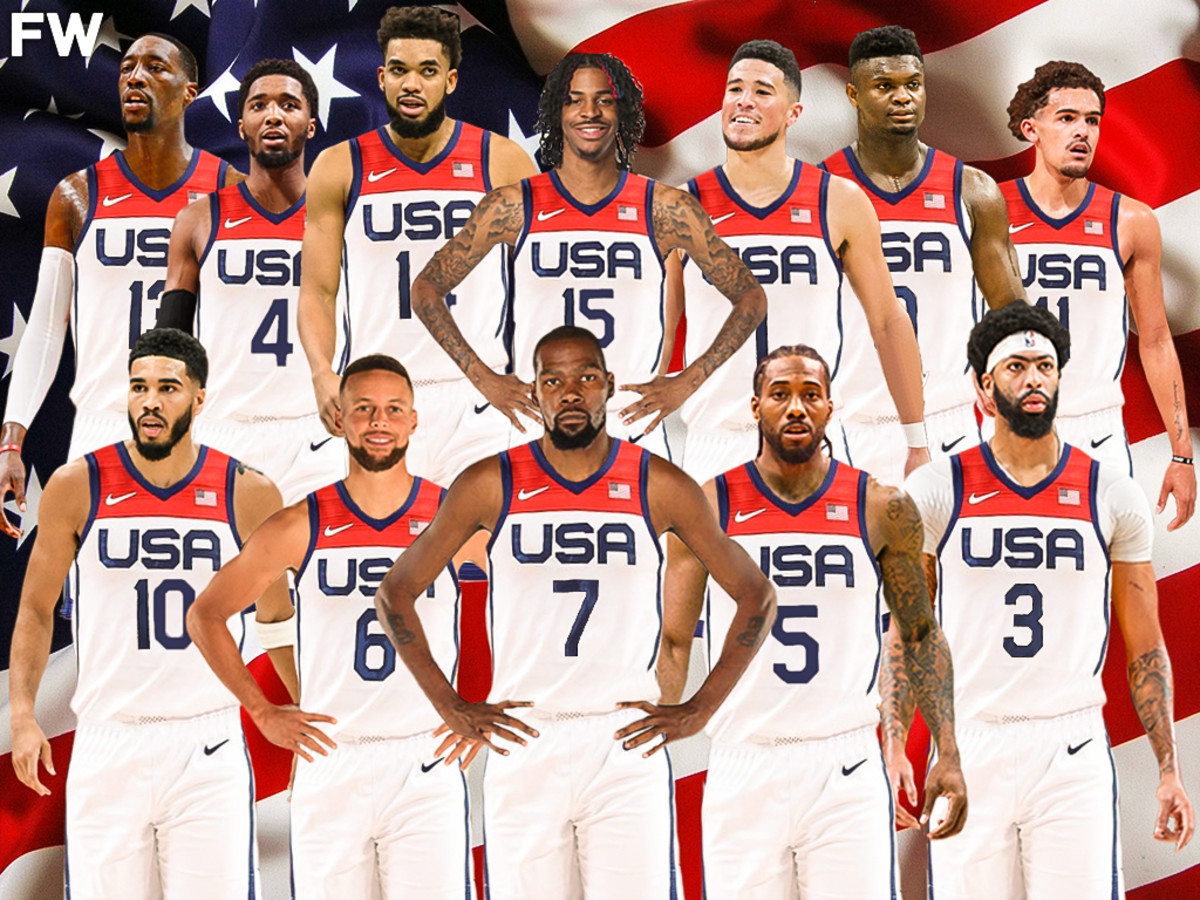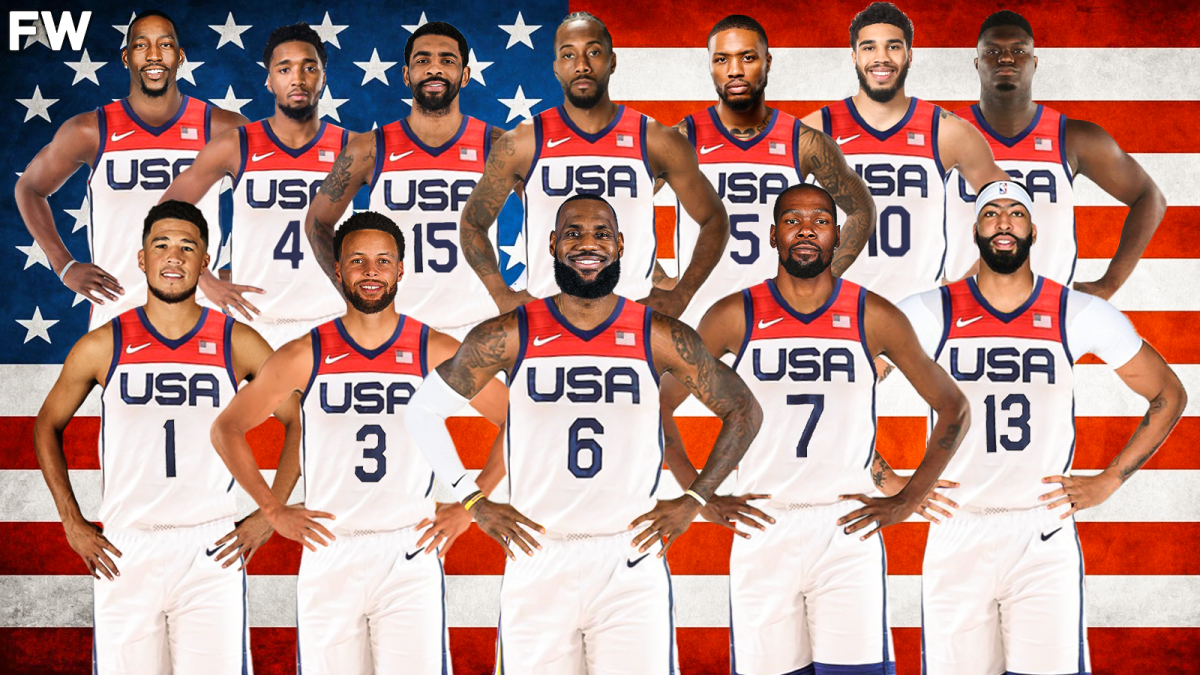History and Legacy

The USA Olympic Basketball Team, also known as “Dream Team,” has a rich history and legacy that spans over a century. From its humble beginnings to its unparalleled dominance, the team has evolved into a global icon, representing the pinnacle of basketball excellence.
Evolution of the USA Olympic Basketball Team
The journey of the USA Olympic Basketball Team began in 1936 at the Berlin Olympics, where a team of amateur players competed under the banner of the Amateur Athletic Union (AAU). The team’s early years were marked by a mix of successes and disappointments, with the team winning bronze in 1936 and 1948, and silver in 1952.
The 1960s saw the emergence of a new era for the USA Olympic Basketball Team, with the team winning gold in 1960, 1964, and 1968. These victories were fueled by the rise of talented players like Oscar Robertson, Jerry West, and Bill Russell.
The 1970s and 1980s were a period of mixed results, with the team winning gold in 1976 and 1984, but facing challenges in 1980 when the United States boycotted the Moscow Olympics.
The turning point in the team’s history came in 1992, with the introduction of the “Dream Team.” This team, composed of NBA superstars like Michael Jordan, Magic Johnson, Larry Bird, and Charles Barkley, dominated the Barcelona Olympics, winning gold with an undefeated record and igniting a global basketball frenzy.
Major Achievements and Notable Players
The USA Olympic Basketball Team has a long list of achievements, including:
- Olympic Medals: 16 gold medals, 1 silver medal, and 1 bronze medal.
- World Championships: 19 gold medals, 2 silver medals, and 1 bronze medal.
The team has also been home to some of the greatest basketball players of all time, including:
- Michael Jordan: Widely considered the greatest basketball player of all time, Jordan led the “Dream Team” to victory in 1992 and also played in 1996.
- Magic Johnson: A legendary point guard, Johnson was a key member of the “Dream Team” and won gold in 1992.
- Larry Bird: Known for his exceptional shooting and all-around game, Bird was another key member of the “Dream Team” and won gold in 1992.
- LeBron James: One of the most dominant players in NBA history, James has led the USA Olympic Basketball Team to gold in 2008, 2012, and 2016.
- Kobe Bryant: A fierce competitor and five-time NBA champion, Bryant won gold with the USA Olympic Basketball Team in 2008 and 2012.
Factors Contributing to the Team’s Dominance
The USA Olympic Basketball Team’s dominance can be attributed to several factors, including:
- Talent Pool: The United States has consistently produced some of the best basketball players in the world, giving the Olympic team a deep pool of talent to choose from.
- Professional Development: The NBA provides a high level of competition and development for players, ensuring that they are well-prepared for international competition.
- Coaching Excellence: The USA Olympic Basketball Team has been led by some of the most respected coaches in the game, including Mike Krzyzewski, Gregg Popovich, and Steve Kerr.
- Team Chemistry: The team has often been able to create strong team chemistry, with players from different backgrounds and teams coming together to achieve a common goal.
Strategic Approaches and Performance: Usa Olympic Basketball Team

The USA Olympic Basketball team has consistently dominated international competition, relying on a blend of individual talent and strategic approaches. Their success stems from a well-defined offensive and defensive system, combined with a roster of elite players.
Offensive Strategies
The USA team’s offensive system is built around spacing, ball movement, and creating high-quality scoring opportunities. They utilize a variety of offensive sets, including pick-and-rolls, cuts to the basket, and perimeter shooting.
- Pick-and-roll: This fundamental play is a cornerstone of their offense, allowing guards to penetrate the defense and create opportunities for both themselves and their teammates.
- Spacing: The USA team prioritizes spacing the floor, maximizing the effectiveness of their perimeter shooters and creating driving lanes for their guards.
- Ball movement: Their offensive system emphasizes quick and efficient ball movement, forcing defenses to rotate and creating open shots.
Defensive Strategies
The USA team’s defensive approach is characterized by its intensity, athleticism, and ability to switch seamlessly between man-to-man and zone defenses. They focus on preventing easy baskets, forcing turnovers, and limiting opponent scoring opportunities.
- Man-to-man defense: This is their primary defensive scheme, allowing them to aggressively guard their opponents and disrupt their offensive rhythm.
- Zone defense: They utilize a variety of zone defenses, including a 2-3 zone, to disrupt the flow of the game and force opponents into difficult shots.
- Transition defense: The USA team emphasizes quick transitions from offense to defense, minimizing opponent fast-break opportunities.
Team Strengths and Weaknesses, Usa olympic basketball team
The USA team possesses several strengths, including:
- Pace: They play at a fast pace, creating scoring opportunities in transition and forcing opponents to scramble.
- Shooting: The team boasts an array of elite shooters, making them a threat from beyond the arc.
- Rebounding: Their athleticism and size give them an advantage on the boards, allowing them to control the tempo of the game.
- Defense: Their aggressive and versatile defense makes them a formidable opponent, forcing turnovers and limiting opponent scoring.
However, the team also has some weaknesses, including:
- Lack of experience: The team often features young players with limited international experience.
- Chemistry: Building chemistry between players can be challenging, especially with a roster featuring multiple new players.
- Fatigue: The grueling Olympic schedule can lead to fatigue, impacting the team’s performance in later games.
Performance in Recent Olympic Games
The USA team has a dominant history in the Olympics, winning gold medals in 2008, 2012, and 2016. However, their performance in the 2020 Tokyo Olympics raised some concerns. They struggled at times, losing to France in the group stage and facing a tough semifinal matchup against Australia.
- 2008 Beijing Olympics: The USA team dominated, winning all eight games and securing the gold medal.
- 2012 London Olympics: They repeated their dominance, winning all eight games and securing another gold medal.
- 2016 Rio Olympics: They continued their winning ways, winning all eight games and securing a third consecutive gold medal.
- 2020 Tokyo Olympics: The USA team faced some challenges, losing a game in the group stage but ultimately securing the gold medal.
Areas for Improvement
Despite their recent success, the USA team can continue to improve in several areas.
- International Experience: The team could benefit from more international competition, allowing players to gain experience and develop chemistry.
- Defense: Maintaining defensive intensity throughout the tournament is crucial, especially against teams with skilled offensive players.
- Depth: The team could benefit from a deeper roster, providing more options and reducing reliance on key players.
The USA Olympic basketball team is a force to be reckoned with, a veritable squad of all-stars. They’ve been dominating the international scene for decades, thanks to the sheer talent and athleticism of the players who make up the roster.
The legacy of dominance is evident in the history of us men’s basketball , which has been a source of pride for American fans worldwide. The Olympic team’s success, however, is not guaranteed, and they face stiff competition from other nations who are catching up quickly.
The US Olympic basketball team, a squad packed with NBA superstars, has always been a force to be reckoned with, but they’ve faced some serious competition over the years. The rivalry with Serbia has been particularly fierce, with both teams boasting incredible talent and a passion for the game.
These battles have not only pushed the US team to their limits but have also helped to shape the global landscape of basketball, raising the bar for international competition.
